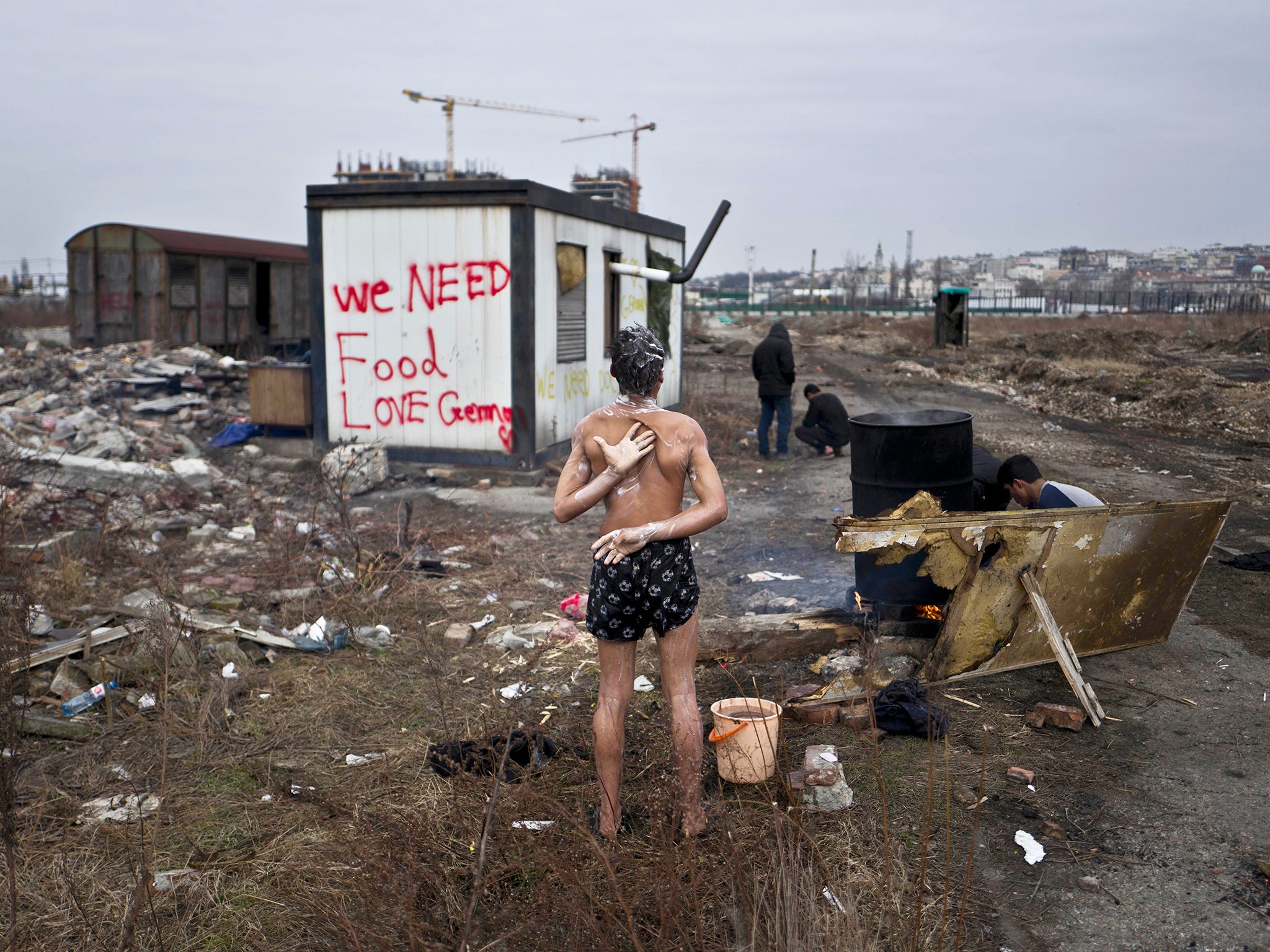European border forces 'frequently abuse' refugees and migrants, report finds
'They took our mobiles and our money, and beat us so harshly we couldn’t get up,' says one Afghan man, Aarif

Refugees and migrants have been been beaten, stripped, robbed and given electric shocks by authorities in the European countries where they are seeking asylum, according to a new report from Oxfam, which says that they are being forced into the hands of people smugglers as a result.
Some of the worst instances of abuse have taken place in Serbia and Macedonia, the report says.
It adds that a group including children were abandoned in freezing temperatures at the dead of night at the Bulgarian border, after being told they were being taken to a Serbian asylum centre.
Researchers from Oxfam heard from migrants that Croatian police forced them to strip naked and walk back over the border to Serbia while running a gauntlet of officers who beat them with batons. Others had attack dogs set on them.
Hungarian officials were also alleged to have forced migrants to strip and sit in the snow as they poured water over them, while Bulgarian police were accused of searching migrants and taking all their possessions, including their shoes, before sending them back over the border.
The report says that researchers found a “disturbing” pattern of mistreatment of refugees and migrants on the Western Balkans route by border officials in Serbia, Hungary, Croatia, Bulgaria and the former Yugoslav Republic of Macedonia.
Much of the treatment described in the report is in breach of international law, including mass "push-backs" of groups of migrants without any assessment of their asylum entitlement.
All 140 people interviewed for the report called A Dangerous Game claimed they had suffered mistreatment at the hands of officials as they attempted to access asylum procedures.
Disturbing testimonies include one from an Afghan man, Isaaq, who said: "The Bulgarian police treated us so harshly that we will never forget it as long as we live – not only me but also all my brothers standing here faced cruelty in Bulgaria. They crossed the limit of cruelty.
"They put us in a cage, and didn’t give us food for three days. They beat us so badly. They even gave us electric shocks."
Another Afghan man, identified as Aarif, described his experiences as he tried to enter Croatia.
"I was caught on the other side by the police, who put us in a car and turned on the air conditioning. It was very cold. Then they threw away our blankets and jackets, and left us on the Serbian border. They took our mobiles and our money, and beat us so harshly we couldn’t get up."
Ruth Tanner, Advocacy Advisor for Oxfam South East Europe, said such stories were encouraging desperate people to turn to people smugglers instead of attempting to use legal channels to claim asylum.
“The brutal illegal actions of law enforcement officials create a climate of fear among refugees and other migrants," she said. “This pushes many to rely on smugglers to continue their journey to other places in Europe, which is very dangerous as it leaves already vulnerable people exposed to the criminal underbelly of trafficking and violence.”
She added: “People who are often fleeing unimaginable violence in their home countries are shockingly and unjustly thrown back into a reality of brutality here in Europe. The testimonies we have collected expose the horrendous treatment governments, including by European Union member states, are letting happen in order to stop people entering their territory.”
The vast majority of interviewees came from Afghanistan and the rest from Pakistan, Syria, Iraq, Iran, Egypt and Lebanon.
Of the 140 people spoken to, 75 had been expelled from Hungary and Serbia, with several reporting multiple push-backs from different countries.
The report also supports findings from UN refugee agency UNHCR that migrants and refugees are regularly being informally and arbitrarily expelled from one territory to another across the region.
Oxfam called on the governments of Serbia, Macedonia, Croatia, Hungary and Bulgaria to immediately cease human rights violations and to take urgent action against the perpetrators of crimes against migrants and refugees.
“EU governments should make sure all states along the Balkans route adhere to international laws and standards, and they must themselves respect these legal and moral obligations," it said.
Join our commenting forum
Join thought-provoking conversations, follow other Independent readers and see their replies
Comments